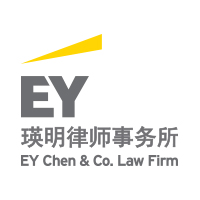As Chinese companies went on a buying spree for overseas assets in recent years, the central government introduced regulations to strengthen authenticity and compliance review related to capital outflow, given the immediate impact that the substantial capital outflow behind aggressive cross-border M&A campaigns may have on its foreign reserves. To prevent capital risks and succeed in making deals, Chinese companies must study relevant regulatory policies and develop a rational funding plan before proceeding with cross-border M&A.

LIN ZHONG
瑛明律师事务所
合伙人
Partner
EY Chen & Co. Law Firm
Domestic guarantee and foreign loan (DGFL). DGFL is an arrangement whereby: (1) a foreign bank grants, to an entity incorporated in a foreign jurisdiction with controlling or non-controlling equity held by a domestic company, any financial facilities secured by a letter of guarantee, or standby letter of credit issued by a domestic guarantor (usually a bank); and (2) as counter-guarantee, the domestic company creates mortgage, charge, pledge or any other encumbrance over its assets or deposits in favour of the domestic guarantor.
According to the Provisions on Foreign Exchange Controls over Cross-border Guarantees and the Operating Guidelines for Foreign Exchange Controls over Cross-border Guarantees issued by the State Administration of Foreign Exchange (SAFE) in 2014, a registration system is implemented for guarantees, pursuant to which guarantees are not subject to prior SAFE approval, but registration must be completed after a guarantee agreement is concluded, or after the obligation of guarantee is fulfilled. Compared with a financing guarantee, DGFL involves a more streamlined process and lowers financing costs. Besides, since loan disbursement takes place outside China, no complicated exchange procedure or direct writing-down of foreign exchange reserves need to be completed under a DGFL arrangement.
The Notice on Further Promoting Foreign Exchange Control Reform and Improving Authenticity and Compliance Review, issued by the SAFE in 2017, reflects its concerns about risks and some other issues related to DGFL arrangements, and strengthens review on authenticity and compliance of transactions and the probability of contract performance. With this change in mind, a company that contemplates an overseas acquisition with a DGFL arrangement should plan early. In addition to submitting financing documents and the registration application, it should keep in touch with the SAFE to make sure that its transaction goes smoothly.
Cross-border RMB payment. According to the Administrative Measures for the Pilot Programme of Renminbi Settlement for Outbound Direct Investments, a company is allowed to pay for its overseas investments directly in renminbi. Making cross-border RMB payments does not have a direct impact on China’s foreign exchange reserves, because it does not involve purchase or exchange of foreign currencies.
The Notice on Further Clarifying Issues Concerning Cross-Border Renminbi Lending Transactions of Domestic Enterprises, issued by the People’s Bank of China (PBOC) in November 2016, requires that a domestic lender who lends in foreign markets must meet requirements in relation to date of incorporation, equity structure, business scale, sources of fund, interest rate, and authenticity and compliance of projects, and restricts the aggregate lending in foreign markets to 30% of the owners’ equity of the lender. In general, these rules tighten foreign exchange regulation over cross-border RMB lending by setting restrictions and highlight authenticity review over transactions.
Issuing foreign bonds. According to the Notice on Promoting the Administrative Reform of the Filing and Registration System for Issuance of Foreign Bonds by Enterprises issued by the National Development and Reform Commission (NDRC), the previous approval system implemented for issuance of foreign bonds has been replaced by a filing and registration system that requires completion of filing and registration procedures with the NDRC before any foreign bonds are issued. Issuing bonds in foreign markets is increasingly attractive to Chinese companies, given the efficiency, lower cost, and its positive role in helping companies gain access to international capital market, and optimizing debt structure so that they will be better positioned to “go global”.
The Notice on Nationwide Implementation of Comprehensive Macro-Prudential Regulation over Cross-border Fundraising Activities, issued by the PBOC in April 2016, implements unified regulation over domestic enterprises’ debts, whether denominated in RMB or foreign currencies, and establishes a nationwide framework of comprehensive macro-prudential regulation over cross-border fundraising activities. The Notice on Issues Concerning Comprehensive Macro-Prudential Regulation over Cross-border Fundraising Activities, issued in January 2017, further raises the limit of cross-border fundraising by domestic enterprises and streamlines relevant formalities, while keeping the overall framework unchanged.
Share-based payment. Compared with cash payment, paying with equity in listed companies reduces payment costs and the pressure of getting substantial cash in a short period of time, while avoiding putting a squeeze on working capital. It also enables shareholders of the target to benefit from increased enterprise value resulting from expansion upon the M&A. Therefore, share-based payment structure is a recommendable option for A-share listed companies.
Although Chinese companies are still not explicitly permitted to give their equity in foreign non-public companies as a consideration for takeover of foreign entities, there is no doubt that the process of their transactions will take much less time because it takes only three working days to go through filing procedures with commerce authorities, provided that a complete set of application material is submitted, according to the Decision on Amending the Interim Measures for the Administration of Incorporation and Alteration Filing of Foreign-funded Enterprises, released by the Ministry of Commerce in July 2017.
Incepting a foreign buyout fund. A Chinese company may incept a foreign buyout fund with a foreign currency fund to use the latter’s capital for overseas investments, thereby alleviating financial pressure and reducing financial risks that may arise from overseas M&A activities. With its disciplined practices and expertise, the buyout fund can also help the company achieving business integration and raising the success rate of its M&A activities.
There are some active foreign buyout funds with Chinese backgrounds. Chinese companies may consider utilizing these funds when making overseas investments. Further development of policy, legal and regulatory frameworks in China, combined with the government’s vigorous efforts in promoting construction of free-trade zones and its many policies supporting the “going global” campaign, is also expected to facilitate development of Chinese buyout funds.
Lin Zhong is a partner at EY Chen & Co. Law Firm
中国上海市浦东新区世纪大道100号
上海环球金融中心51楼 邮编:200120
51/F, Shanghai World Financial Center
100 Century Avenue, Pudong New District
Shanghai 200120, China
电话 Tel: +86 21 6881 5499
传真 Fax: +86 21 6881 7393
电子信箱 E-mail:
zlin@eychenandco.com







-Yang-Yuhua-Llinks-Law-Offices-218x150.jpg)














